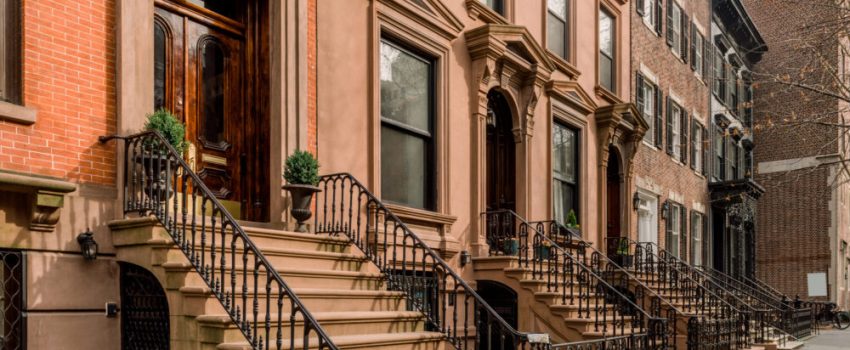This article was originally published in Originate Report Magazine
Article by: Ruben Izgelov, We Lend LLC
In New York State, news that the eviction and foreclosure moratoria would not be renewed this January was welcomed by many in the real estate industry. The announcement implied that New York City and the state at large are rebounding from the COVID pandemic and are finally able to regain some control over their properties after two difficult years.
At the same time, affordable housing advocates are now pushing lawmakers to enact legislation that they argue would help tenants by reducing evictions and limiting increases to rent. The proposed Good Cause Bill, currently making its way through the New York legislature, would limit a landlord’s ability to evict non-paying tenants. The bill also calls for restricting “no-cause evictions” and ensuring that many tenants receive an automatic lease renewal.
What the Good Cause Bill is actually trying to remedy is a housing shortage that has driven rental prices through the roof. However, the shortage has been exacerbated by red-tape legislation that has made it difficult to build enough affordable housing to meet the demand. As a result, real estate investors are being driven away, gravitating towards more accommodating locations, such as Florida and Texas, and contributing to their economies.
enough affordable housing to meet the demand. As a result, real estate investors are being driven away, gravitating towards more accommodating locations, such as Florida and Texas, and contributing to their economies.
So, what could New York State do to incentivize the development of affordable housing?
Relax the zoning laws
One alternative to the Good Cause Bill lies in relaxing zoning laws, freeing up developers to convert more commercial spaces into residential properties. US states that have more relaxed zoning are in a better position to encourage the development of affordable housing. In Houston, investors can more easily turn commercial properties such as offices and hotels into new multifamily buildings, without getting extensive approvals for a change of zoning.
Texas has one of the highest rates of issuing housing permits in the country, which is contributing to staggering growth in cities like Houston. Between 2010 and 2019, Houston developers built more than 114,000 new apartments, which is more new housing than almost any other US city. According to Bloomberg, Houston’s relaxed approach to zoning helped the city recover from Hurricane Harvey in 2017. Some 40,000 homes were destroyed, but relaxed zoning helped revive the urban center at a rapid pace.
Another advantage to building in Houston is that there are fewer administrative hoops to jump through, allowing construction to start more quickly. Ironically, these development-friendly policies have garnered the attention of real estate investors, which increases the risk of driving up housing costs.
Of course, no two states are the same. But by learning from Houston’s example, New York City could stimulate the private sector to increase the development of affordable housing. Relaxed zoning may incentivize New York developers to, for example, transform hotels into multifamily apartment buildings, which would be quicker and cheaper than building from the ground up, and would potentially add a much-needed new batch of affordable housing.
Favorable tax policies
Another initiative New York City could benefit from is more favorable tax incentives for investors and developers. Florida is particularly advantageous from a tax perspective. The Sunshine State has no personal income tax, a 5.5 percent corporate tax rate and no payroll taxes.
These tax-friendly policies spill over into real estate as well. Florida overall is experiencing a boom in real estate construction. Miami-Dade County has one of the strongest real estate markets in the nation, according to the National Association of Realtors. What’s more, the region has created tax incentives with the aim of creating 14,000 new affordable housing units by the end of 2022.
Favorable tax incentives in Florida are stealing away some of New York’s real estate investors, bringing added economic growth to the Sunshine State. The past year saw a large exodus of Wall Street investors from NYC for Florida. Redfin CEO Glenn Kelman even told CNBC that “everybody’s leaving New York for Florida” for both the low taxes and warm weather.
New York could learn a lot from Florida. Currently, New York state has one of the highest overall tax rates in the US. Favorable tax policies would help to keep investors in the city and encourage further development and growth in the real estate market.
Looking for a middle ground
While New York contends with the Good Cause Bill, other states have been considering legislation that attempts to place a cap on rent increases. Inspired by a similar rent cap in Oregon, California introduced a bill in 2020 called the Tenant Protection Act, which limits the percentages by which landlords can increase rents, and removes the right of landlords to evict tenants without cause.
However, one major difference between the California and Oregon legislation and New York’s proposed Good Cause Bill is that the rental caps do not apply to buildings that are less than 15 years old. This means that developers in California and Oregon who wish to create new affordable housing options are not subject to that limitation, which gives them more financial freedom to create a mix of rents that make affordable units possible.
The bottom line
As other US states are demonstrating, New York has many options to increase the number of affordable housing units available. There is still plenty of time for legislators to review the Good Cause Bill and to strive for a solution that will benefit both tenants and landlords. It’s clear that striking that balance is key to helping New York’s affordable housing supply growth in the future.
About the Author
Ruben Izgelov is a co-founder and managing partner at Nationwide Private Lender We Lend LLC. With over a decade in the real estate industry, Ruben has quickly become a renowned real estate expert, speaker, and guide for many professionals in the industry. After using private money financing himself, he quickly saw the innovation desperately needed in the private lending space and decided to spearhead it by co-founding We Lend, LLC (a private lending platform). Ruben is a graduate of St. Johns University and Touro School of Law, where he earned a BS in legal studies and his JD, finishing cum laude and magna cum laude.

Ruben Izgelov
Co-Founder and Managing Partner
Website: https://www.welendllc.com/?hsLang=en






